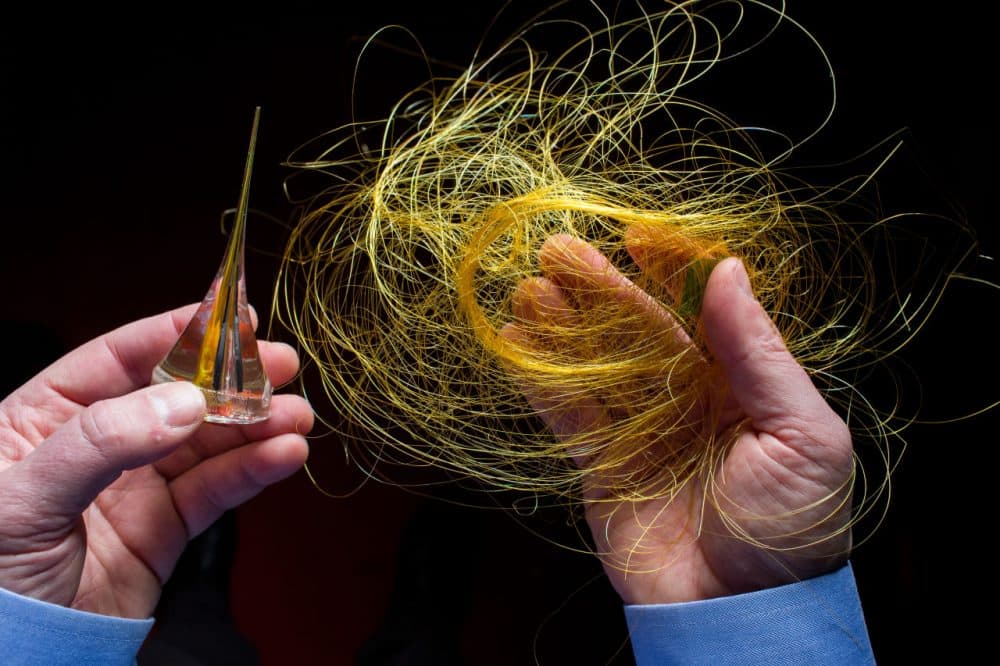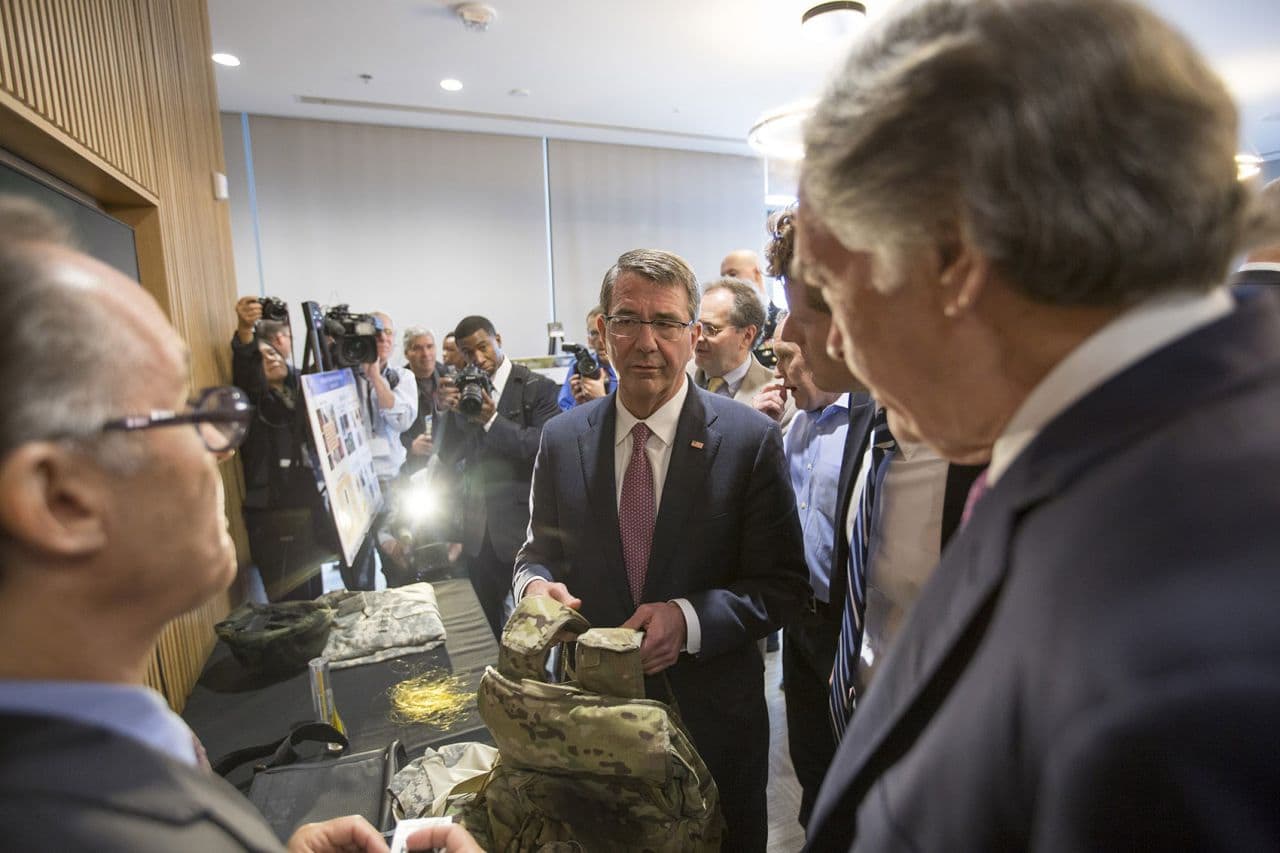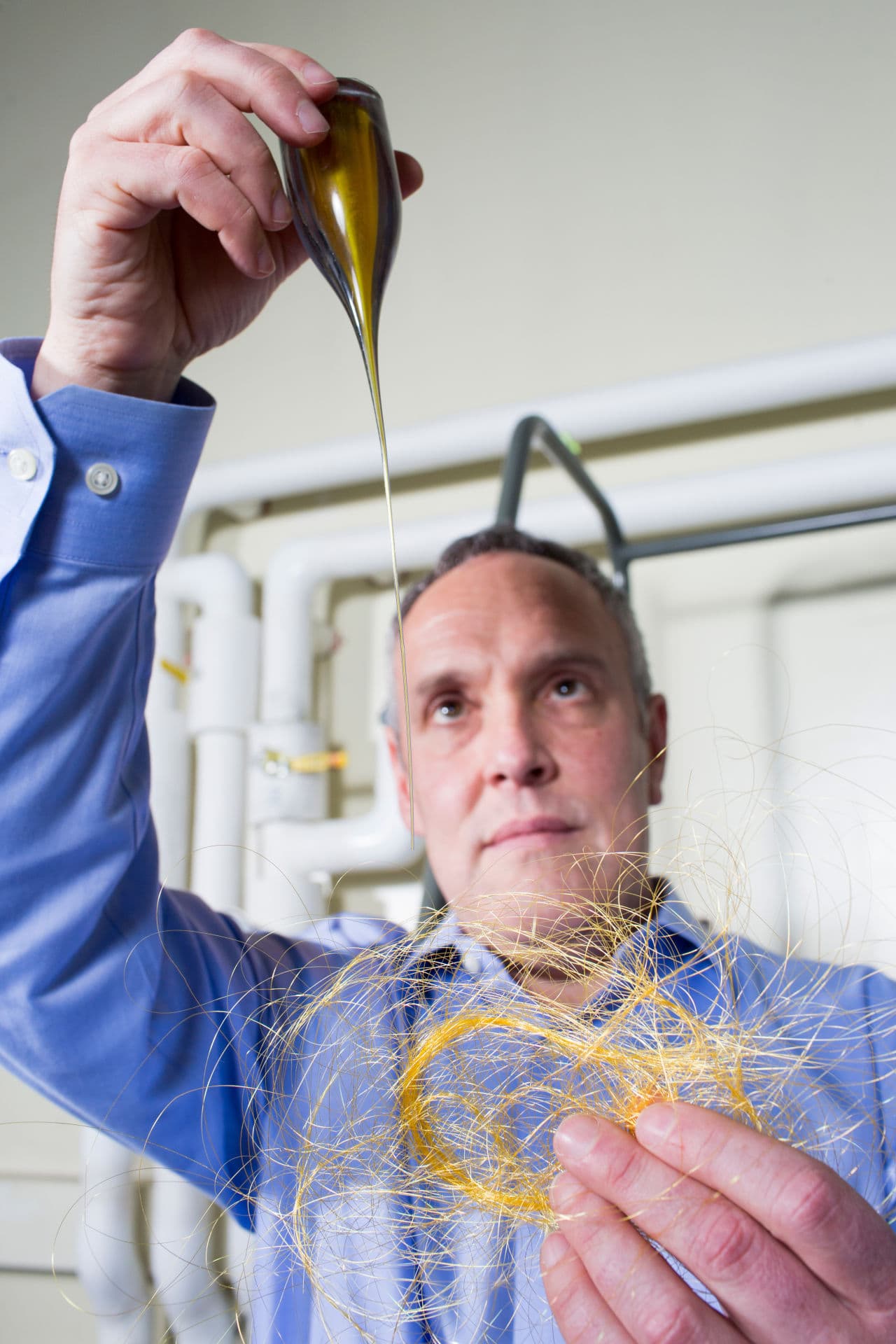Advertisement
Mass. Chosen To Lead National Textile Manufacturing Innovation Hub

Imagine wearing a T-shirt that’s connected to the Internet or allows you to charge your phone, or even monitors your health and tells you when you might need to see a doctor. Yeah, it seems pretty out there, but that's exactly what a new Massachusetts institute aims to do.
The state has been chosen to lead a national center called the Revolutionary Fibers and Textiles Manufacturing Innovation Institute, the White House and Gov. Charlie Baker's office announced Friday.
Baker said the new institute will be a vital piece of innovation infrastructure that will help develop a new generation of manufacturing technology and highly skilled workers here in Massachusetts.
"This is the beginning of an enormous sea change in the way we think about the collaboration and connection between old and new technologies, and I can’t think of a better place for that to take place than here at MIT," Baker said during a press conference at MIT Friday.
U.S. Defense Secretary Ash Carter joined Baker and other state leaders Friday to discuss the initiative.
Ash said the innovations created at the new institute will benefit American troops on the ground.

"It will allow our soldiers to carry, for example, antennas within their clothing, to operate in a hot climate and ... there are more lightweight ways of weaving batteries into fabric," Ash said. "All this is relevant to a lot of different military tasks including in the war against ISIL."
The $317 million initiative is being led by MIT through Advanced Functional Fabrics of America, a new independent nonprofit founded by the school. It includes $75 million in federal funding and $40 million in matching funds from the state, as well as funds from industry partners.
Yoel Fink, the director of MIT’s research laboratory of electronics, led the proposal for the institute and said it aims to create textiles for the future.

“The goal of our institute is to go and change everywhere a fiber goes and everywhere there’s fabric … and to really embed in these a functional meaning that is well above what exist today,” Fink said in a phone interview. “Fibers and fabrics reach a lot of different places. [They’re] in tires, they go into composites that make cars and airplane wings, they’re the material that makes diapers and obviously there’s also the whole world of apparel.”
The institute will produce fabrics and fibers with a range of technical capabilities — such as being incredibly lightweight or flame-resistant to storing energy or having exceptional strength. Researchers plan to use these capabilities to develop new advances in health care, military technology, wearable technology and fashion. For example, this could mean protective gear for firefighters that can withstand the hottest flames or military uniforms that can detect chemical threats. It could even mean clothing that regulates your temperature — cooling you down in the summer or warming you up in the winter.
Technology has already found its way into art and fashion, and wearable devices have been a trend in recent years. But, Fink said, fabrics are still largely used the same way they were used in ancient times. He said the new institute aims to change that — and revolutionize textile manufacturing in the process.
“We’re expecting to see the rebirth of fabrics and really a new industry come up around this area, and Massachusetts is very well positioned to do it,” Fink said. “Fabrics are the new software.”
The new institute is part of President Obama’s federal manufacturing initiative called the National Network for Manufacturing Innovation. The institute is the eighth manufacturing hub selected by the Obama administration. Massachusetts already has connections with two regional manufacturing centers — one for photonics and one for flexible hybrid electronics — but this is the first to be based in the state.
The new center is a national initiative that brings together 89 businesses, universities and nonprofits from across the country. The University of Massachusetts is a key partner that will provide expertise in flexible electronics and wearable technology. Another partner is Quinsigamond Community College in Worcester, which will work to train skilled workers for this new area of high-tech textile manufacturing. Companies involved in the initiative include New Balance, Nike, Bose and Intel.
The institute will have a prototyping facility designed to help startups test their first products and scale up new technologies into full production.
Officials say the new institute will boost the state’s manufacturing sector and innovation economy.
“Well-paid advanced manufacturing jobs support residents and their families, while ensuring that Massachusetts remains on the cutting edge of technological growth,” state Housing and Economic Development Secretary Jay Ash said in a statement.
The initiative is expected to get off the ground in six months, according to MIT.
Massachusetts has a long history when it comes to textile manufacturing and was once a major textile center. Now, with this multimillion-dollar initiative, it may also be the future of the textile industry.
This article was originally published on April 01, 2016.
